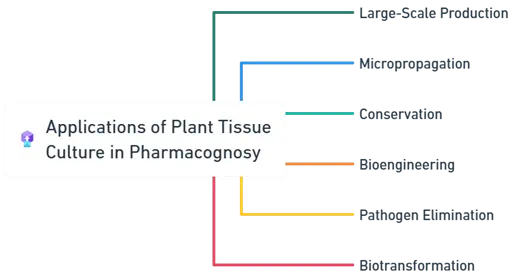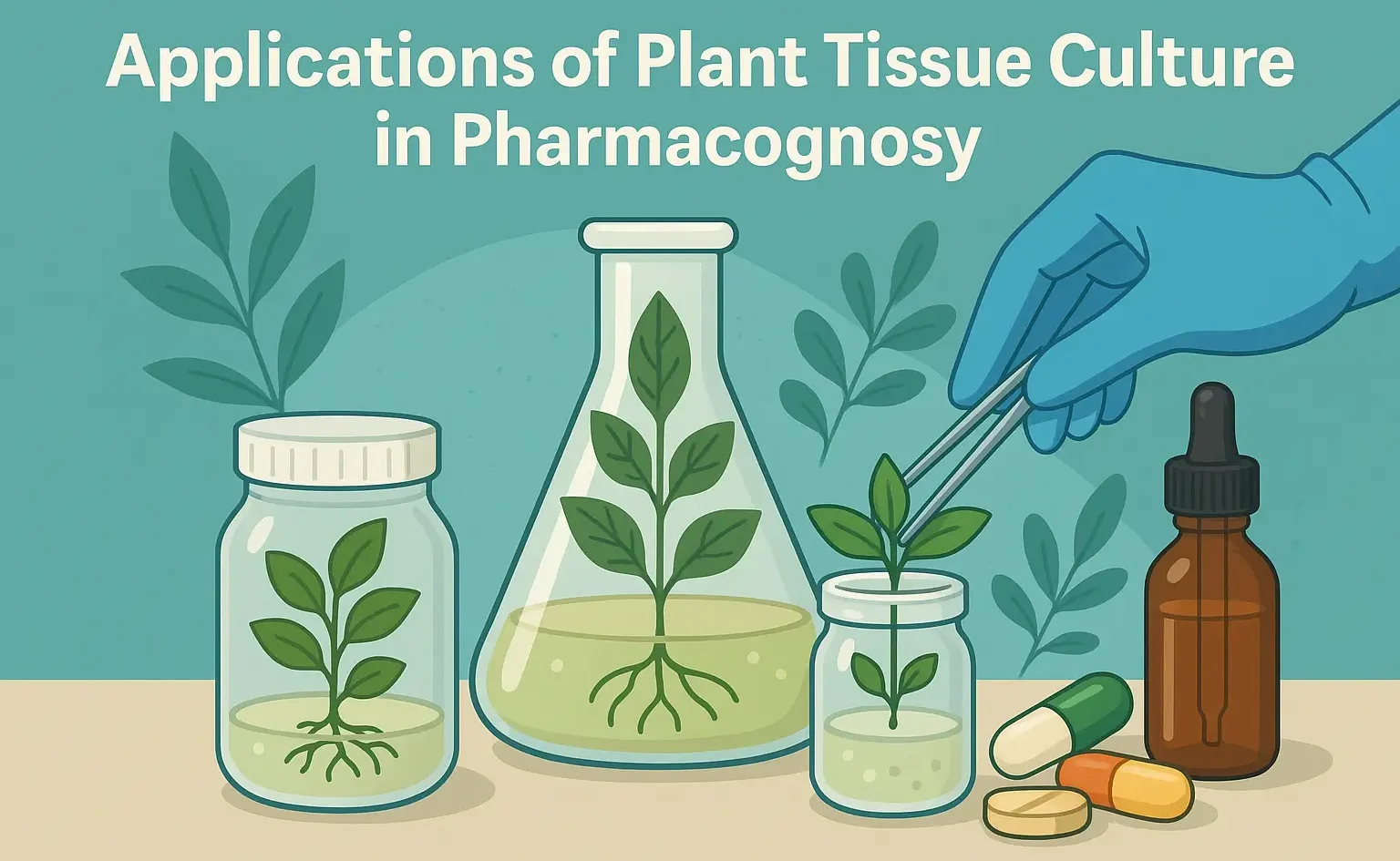- Applications of Plant Tissue Culture in Pharmacognosy enable mass production of bioactive compounds from medicinal plants.
- Applications of Plant Tissue Culture in Pharmacognosy aid rare medicinal plant preservation and sustainable herbal drug resources.
- Plant tissue culture has several applications in this field:

-
Large-Scale Production:
- Cultures produce secondary metabolites (e.g., alkaloids, flavonoids) for medicinal use.
- Example: Vinblastine and vincristine from Catharanthus roseus for cancer treatment.
-
Micropropagation:
- Enables rapid, large-scale production of medicinal plants.
- Example: Aloe vera, Withania somnifera (Ashwagandha), and Digitalis (source of digoxin).
-
Conservation:
- In vitro techniques and cryopreservation safeguard rare or endangered species.
- Example: Taxus baccata for Taxol production.
-
Bioengineering:
- Genetic modifications boost the production of medicinal compounds.
- Example: Engineering Artemisia annua to increase artemisinin for malaria treatment.
-
Pathogen Elimination:
- Meristem culture produces disease-free plants for pharmaceutical use.
- Example: Virus-free ginger, turmeric, and garlic.
-
Biotransformation:
Click Here to Watch the Best Pharma Videos

